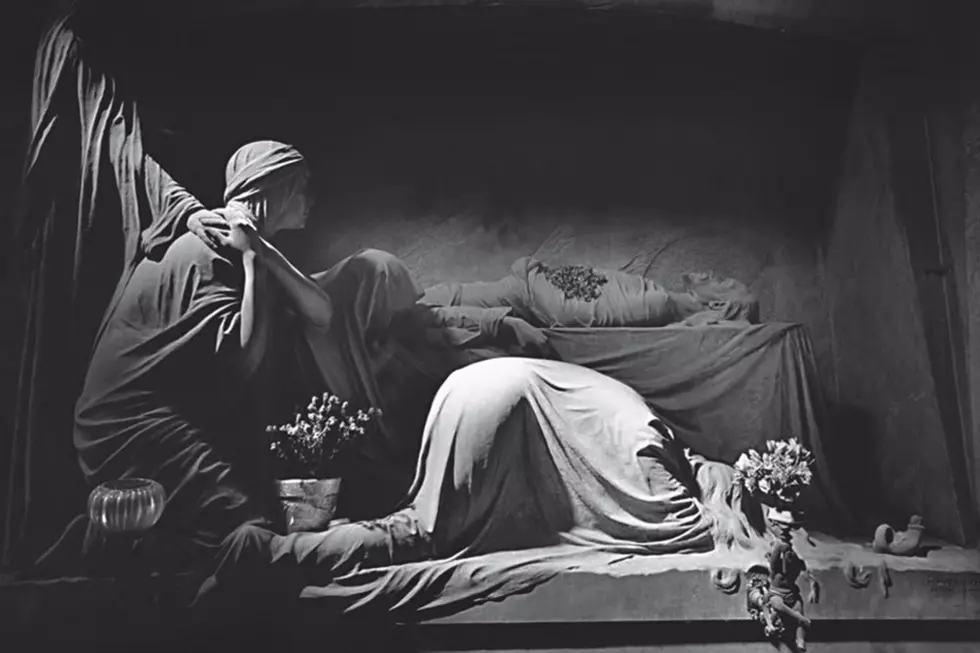
How Joy Division’s ‘Closer’ Arrived in the Wake of Ian Curtis’ Death
The First Rule of Joy Division: There is no joy.
Over the years, Joy Division have taken on a mythical quality, and today, they're heralded by indie fans as the forefathers of dark, gothic, minimalist, synth-laden odes to discontent. And given the baritone, robot-like voice of singer Ian Curtis, who famously committed suicide at the height of the group's fame, the reputation is at least partially deserved. You can hear Joy Division's influence in modern bands as diverse as Franz Ferdinand, Nine Inch Nails, Interpol, Danzig, Radiohead, the Killers and Bloc Party.
If the '70s ushered in punk rock in the form of fast, minimalist slackery, the '80s brought forth the opposite: drawn-out, flamboyant egoism. The rise of the synthesizer was certainly a factor -- holding down a few keys was way easier than strumming a chord -- and beyond that, artists simply felt the need to take punk a step further. Thus were born post-punk and New Wave.
Joy Division’s two-album output falls somewhere between the two new aesthetics. At times, their music is highly pretentious and electronic; others, it has a breathtakingly simple and almost atonal quality, as if Curtis and his bandmates were thumbing their noses at some of the dreck floating around England at the time.
Joy Division's second (and sadly final) album, Closer, was released July 18, 1980, less than two months after Curtis' death. It’s a dour album from front-to-back and a difficult listen if you like a major chord every once in a while. There's a dirge-like quality to the work on the whole, with the exceptions of "Isolation" and "Twenty Four Hours," which pick up the torpid pace and up the tempo to a danceable level. "The Eternal," a wispy electric piano ballad, stands out as the masterwork.
Although the album didn’t chart in the States (it hit No. 6 in the U.K.), it’s since been hailed as one of the greatest albums of the era. And rightfully so. Curtis' bandmates would go on to have tremendous success with New Order, the group they formed after his death, and for as innovative as they were, they never matched the dramatic power of Closer. You might argue no one has.
50 Rock Facts You May Not Know
More From Diffuser.fm









